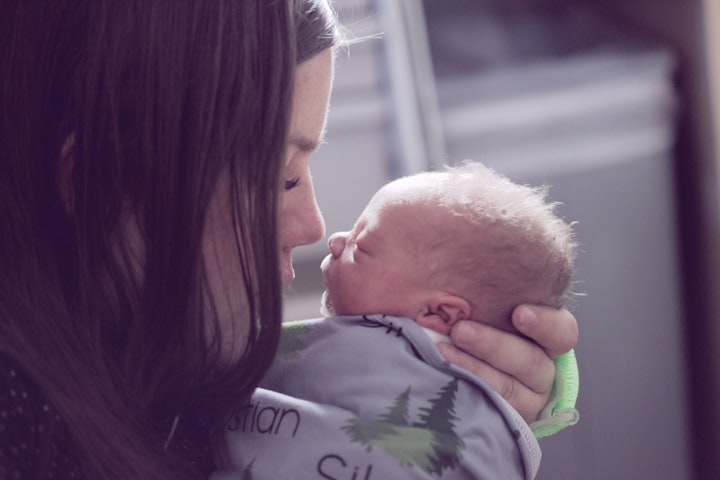Pregnancy, Birth And Beyond
A Comprehensive Guide To Maternal Health

Pregnancy, childbirth, and the postpartum period are transformative and awe-inspiring journeys that bring joy, challenges, and significant changes to a woman's life. Maternal health during this time is of utmost importance, as it directly impacts both the mother and the baby. In this comprehensive guide, we will delve into the various aspects of pregnancy, childbirth, and the postpartum period, providing essential information and insights to support maternal health and well-being.
Pregnancy: A Journey of Transformation
Pregnancy is a remarkable journey that lasts approximately 40 weeks, divided into three trimesters. During this time, a woman's body undergoes incredible changes to nurture and accommodate the growing baby. It is important to focus on maintaining a healthy lifestyle, including a nutritious diet, regular exercise, prenatal care, and emotional well-being. Regular check-ups with healthcare providers, such as obstetricians or midwives, will help monitor the progress of the pregnancy and address any concerns or complications.
Nurturing Maternal Health during Pregnancy
a. Healthy Eating: Proper nutrition is crucial during pregnancy to support the growth and development of the baby. A well-balanced diet rich in fruits, vegetables, whole grains, lean proteins, and essential nutrients like folic acid, iron, and calcium is recommended. It is also important to avoid certain foods, such as raw or undercooked meats, unpasteurized dairy products, and high-mercury fish.
b. Regular Exercise: Staying active during pregnancy has numerous benefits, including improved mood, reduced pregnancy discomfort, better sleep, and enhanced stamina for labor. Engaging in low-impact activities like walking, swimming, prenatal yoga, or approved exercises can help maintain overall fitness and prepare the body for childbirth.
c. Prenatal Care: Regular prenatal check-ups are essential for monitoring the health of both the mother and the baby. These visits include physical examinations, blood tests, ultrasounds, and discussions about the pregnancy progress, nutrition, and any concerns or questions. Prenatal care also involves receiving vaccinations, taking prenatal vitamins, and discussing birth plan preferences.
d. Emotional Well-being: Pregnancy can bring a range of emotions, and it is vital to prioritize emotional well-being. Seeking support from loved ones, participating in prenatal classes, joining support groups, practicing relaxation techniques, and expressing concerns to healthcare providers can contribute to a positive and emotionally healthy pregnancy experience.
Preparing for Childbirth: Education and Choices
Childbirth is a transformative event that requires preparation and informed decision-making. Understanding the various options and interventions available empowers women to make choices aligned with their preferences and needs.
a. Childbirth Education: Attending childbirth education classes equips expectant parents with knowledge about the stages of labor, pain management techniques, relaxation exercises, and the role of support partners. These classes provide an opportunity to address any fears or concerns and build confidence for the birthing process.
b. Birth Plans: Creating a birth plan allows expectant parents to communicate their preferences and desires for labor and delivery to the healthcare team. This document can outline preferences for pain management, labor positions, interventions, and immediate postpartum care. It is important to understand that flexibility may be necessary as birth can be unpredictable.
c. Pain Management: Pain during labor varies for each woman. Exploring various pain management options, such as relaxation techniques, breathing exercises, hydrotherapy, massage, and medical interventions like epidurals or analgesics, can help expectant mothers find the most suitable methods for coping with labor pain.
The Miracle of Birth: Labor and Delivery
a. Stages of Labor: Labor is typically divided into three stages: early labor, active labor, and the delivery of the baby and placenta. Each stage brings distinct physical and emotional changes. Early labor often involves mild contractions, while active labor is characterized by stronger and more frequent contractions. The delivery stage involves the baby's descent and the actual birth.
b. Support During Labor: Having supportive companions during labor, such as partners, family members, or doulas, can provide emotional and physical support. Their presence can offer reassurance, comfort measures, advocacy, and encouragement throughout the birthing process.
c. Medical Assistance: Healthcare professionals, including obstetricians, midwives, and nurses, play a crucial role in ensuring a safe and healthy delivery. They monitor the progress of labor, provide guidance, administer pain relief measures if desired, and intervene if necessary for the well-being of the mother and baby.
The Postpartum Period: Recovery and Adjustment
The postpartum period begins immediately after childbirth and extends for several weeks. This phase involves physical recovery, emotional adjustment, and establishing a nurturing environment for both the mother and the newborn.
a. Physical Recovery: The body goes through significant changes during childbirth, and postpartum recovery is necessary to allow tissues and organs to heal. This period may involve postpartum bleeding, soreness, breast engorgement, and hormonal fluctuations. Adequate rest, pain management, good nutrition, and proper wound care are essential during this time.
b. Emotional Well-being: The postpartum period can bring a range of emotions, including joy, sadness, fatigue, and anxiety. The "baby blues" are common and typically resolve within a few weeks. However, postpartum depression and anxiety are more severe and require professional support. Seeking help, building a support system, and practicing self-care are vital components of emotional well-being.
c. Breastfeeding and Infant Care: Breastfeeding offers numerous benefits for both the mother and the baby. Seeking guidance from lactation consultants, attending breastfeeding support groups, and having a supportive environment are crucial for successful breastfeeding. Understanding infant care, such as diaper changing, bathing, soothing techniques, and recognizing baby's cues, assists in creating a nurturing environment.
Conclusion:
Pregnancy, childbirth, and the postpartum period are incredible journeys that require proper attention to maternal health and well-being. By prioritizing prenatal care, maintaining a healthy lifestyle, making informed choices, and seeking support, women can enhance their overall pregnancy experience. Remember, every pregnancy and birth is unique, and embracing the transformative process with knowledge and support can lead to a positive and empowering journey into motherhood.
About the Creator
OJO OREOFE
Hi there, My name is Ojo Oreofe. I am a professional writer with over two years of experience creating content for a variety of audiences. I have worked as a freelance writer for multiple publications. In my free time, I enjoy reading.






Comments
There are no comments for this story
Be the first to respond and start the conversation.